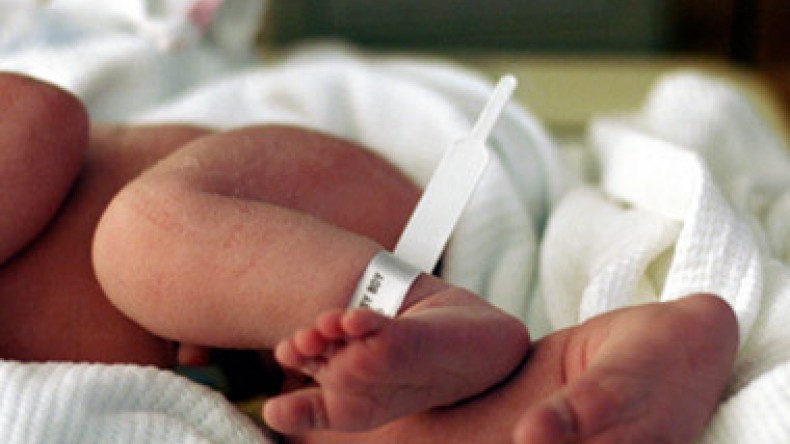
Fukushima nuclear disaster causes cancer and birth defects in US newborns – epidemiologist
After the disaster at the Fukushima nuclear plant in Japan, little attention was paid to how the radiation leaks can affect the health of children who live in the US. Joseph Mangano, epidemiologist and Executive Director of the Radiation and Public Health Project research group, speaks with the Voice of Russia about the study that showed that kids born after 2010 have some 26% percent higher risks to have cancer and birth defects. But the US keep silent on the problem.
After the study by the Radiation and Public Health Project research was made public there was little response or reaction in the US. Although, Joseph Mangano expects to hear from people more as there are great concerns about the safety of food in water, even in the US from Fukushima.
"We just published a study in the Open Journal of Pediatrics. We looked at official two types of data: one was the EPA statistics on how much radiation was in the air in the weeks and months after Fukushima (it was much higher in the West Coast than in the rest of the country) and number two – we looked at the state California’s official statistics on newborns who are born with a condition called hypothyroidism which is where the thyroid is underactive. It is something that is known to be affected by exposure to radioactive Iodine which is only created in atomic bombs which haven’t been exploded for years and nuclear reactor emissions," explains Joseph Mangano.
The Fukushima nuclear disaster is quite harmful for human health, although it happened in Japan, all the way across the ocean, the contaminated waters and polluted air can easily reach the continent on the other side of the Pacific Ocean.
"Studies almost three years ago found that the plume of radiation that escaped from Fukushima arrived on the West Coast of the US just five days after the initial meltdown. It doesn’t take long: once these radioactive particles in gases get in the air, it moves along with prevailing winds and keeps travelling until it returns to the environment through rain and snow," says epidemiologist Joseph Mangano in an interview with the Voice of Russia.
"It circled the entire Northern hemisphere but it got to the West Coast within five days and came into the environment in greater amounts on West Coast and elsewhere in the country," Mangano continues.
The aim of the study is to find the correlation between the increased cases of hypothyroidism disease in children and the consequences of the Fukushima catastrophe.
"We are just now starting to get our hands on recent data from 2011. It means that we start by looking at the fetus and the newborn because they are the most susceptible to radiation. And we are going to be looking at not just hypothyroidism but at further birth effects: infant deaths, babies were born underweight; babies were born prematurely- things of that nature to see before and after Fukushima if there was a difference. It’s gonna take decades to know what the full casualty list of Fukushima is because sometimes it takes decades, for example, for a cancer to show itself, to manifest itself after the exposure," Joseph Mangano explains to the Voice of Russia’s host Jay Johnson, who conducted the interview.
In the future more children would be born with diseases or other health problems caused by Fukushima disaster. According to Mangano, more people would be born not just with birth defects, but with diseases affected by the radiation, such as cancer.
Recently, Japan has surveyed 200,000 children near the Fukushima plant in 2012 and has found out that 56% of the children under 18 have a precancerous lesions which is absolutely off the charts, as it should be almost none, says Mangano.
"It’s an ongoing study by Fukushima Medical University. They also found as many as 59 kids had thyroid cancer and that’s a condition that’s very rare in kids. We would expect in three years maybe one or two. They confirmed 26 and they suspect another 33. So, this is just the beginning. As a research community we really need to look at this terrible meltdown seriously and do all the studies on the continuing basis," Joseph Mangano said.
Newsfeed
Videos






























